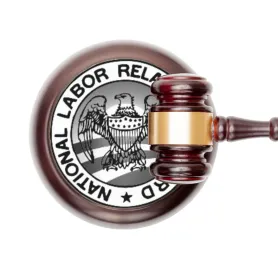Though the National Labor Relations Board has established a pathway for holding in-person union elections, mail-ballot elections continue to be the norm in many Regions across the country. Of course, the more mail-ballot elections that occur, the more unique issues arise. In XPO Logistics Freight, Inc., 370 NLRB No. 99 (2021), the Board weighed in on two such issues that arose as employees attempted to return their mail-in ballots to the Region. First, when a ballot is returned unsigned, the Board discussed how much time is “sufficient time” for the Board to send that employee a new ballot. Second, the Board discussed conclusions to be drawn from a damaged ballot. Both issues are not uncommon during mail ballot elections, and the Board’s decision provides clarity to employers faced with these problems.
Background
The Region conducted a mail ballot election of the employer’s employees in August 2020, with a deadline to return ballots by August 17. It ultimately received four unsigned ballots, one ballot with the employee’s name printed rather than signed, and one damaged ballot. The Region voided all six ballots. The employer challenged two others on separate grounds. The ballot count ended up being 54 to 60 against unionization, meaning the voided and challenged ballots could be determinative. After a series of objections lodged by the union, the Regional Director found that the Regional Office potentially disenfranchised voters by failing to send them duplicate voter kits so they could cure their ballots, and found that the damaged ballot was a “yes” vote despite the fact that the right half of the ballot was torn off.
Ballots Returned Unsigned
The Board analyzed one particular ballot, returned unsigned on August 14. The Regional Director had held that the Regional Office had “sufficient time” to mail this employee a duplicate voter kit – and by not doing so had disenfranchised the employee. The Board, however, reversed the Regional Director’s decision, holding that despite the fact the employee lived in the same county as the Regional Office (or in an adjacent county), August 14 to August 17 (the return date) was simply too short a time for the employee to receive and return the kit by mail. Because there was insufficient time left for the Regional Office to send a duplicate ballot kit, this employee was not disenfranchised.
Ballot Returned Damaged
The Board further analyzed a ballot returned torn in half, but with a “yes” vote clearly marked. Again reversing the Regional Director, the Board, relying on Midland Steamship Line, Inc., 58 NLRB 1091 (1944), held that a ballot torn in half is void, despite the fact that the “yes” vote was clearly marked. The Board noted that it “avoids speculation or inference regarding the meaning of physical altercations to a ballot,” and that the Regional Director “necessarily had to resort to speculation as to the possible meaning of the voter’s physical alteration to the ballot at issue here.” Because speculation about the voter’s intent was involved, the Board reversed and voided the ballot.
Takeaways
Mail ballot procedures are in theory rigid and designed to ensure eligible employees have plenty of time to vote. The procedures clearly state that the employee must sign the ballot and return it by a particular date. As this case demonstrates, however, there are many opportunities to challenge the balloting. It is unclear whether the employee printing the name instead of signing it just did not understand – or disregarded – the procedures. It also is unclear whether delays in the mail delivery contributed to a ballot being received with no time to correct. While most employers prefer in-person balloting, it is likely mail balloting will continue to be the norm even after the pandemic is over. So long as mail-in ballots continue to be used for the majority of elections, unique issues will continue to arise. With the Board’s decision in XPO Logistics, employers can at least have some clarity with respect to some of the more typical issues that may arise.





 />i
/>i
